Receding Gums: Causes and Treatment
Receding gums, a common oral health concern, can lead to various issues if left untreated. Understanding the causes, signs, and treatment options for receding gums is essential for maintaining oral health and preventing further complications. In this article, we will explore the etiology and treatment of gingival recession, shedding light on why it occurs and how it can be effectively managed.
What are Receding Gums?
Receding gums and gum recession refers to the condition where the gum tissue surrounding the teeth begins to wear away or pull back, exposing the tooth roots. It’s not just a loss of gum tissue but also involves a loss of clinical attachment and supporting bone underneath the gums. Measuring recession involves determining the distance from the cementoenamel junction (CEJ) to the gingival margin, accounting for both recession and pocket depth to calculate attachment loss accurately.

Causes of Receding Gums
Several factors can contribute to the development of receding gums:
- Trauma: Aggressive tooth-brushing, using hard toothbrushes, tongue or lip piercings, and iatrogenic damage from dental treatments can lead to gum tissue trauma and recession.
- Periodontitis: Gum disease can cause the supporting bone to be lost, leaving the gums unsupported and prone to recession.
- Tooth Position: Teeth moved outside of their alveolar housing, either due to orthodontic treatment or other reasons, can lead to bone and gum loss on the exposed surfaces.
- Local Inflammation: Plaque buildup, restorative margins, or other sources of inflammation can cause gingival tissue to recede, especially in patients with thin or sensitive tissues.
Signs and Symptoms
Receding gums may manifest differently depending on the individual but commonly include:
- Visible tooth roots
- Increased tooth sensitivity
- Gum tenderness or bleeding
- Changes in gum appearance, such as a “longer” tooth appearance

Tooth sensitivity is very common with extensive receding gums
What Should I Do If I Have Receding Gums?
If you suspect you have receding gums, it’s essential to seek dental evaluation and treatment promptly. Early intervention can prevent further progression and address any underlying issues contributing to the recession.
Treatment Options for receding gums
Treatment for receding gums depends on the underlying cause:
- Periodontal Treatment: For cases associated with gum disease, periodontal therapy to stabilize the condition may be necessary. This can include scaling and root planing, antibiotic therapy, or surgical interventions.
- Tissue Grafting: Grafting procedures can help restore lost gum tissue and cover exposed tooth roots. Different techniques may be used depending on the severity and location of the recession.
- Orthodontic Intervention: Addressing tooth positioning issues through orthodontic treatment can prevent further gum recession and support long-term oral health.
- Addressing Trauma: Patients should modify habits contributing to gum trauma, such as aggressive tooth-brushing, to prevent further damage.
Recovery and prevention of receding gums
- Practice gentle tooth-brushing using a soft-bristled toothbrush.
- Use proper brushing techniques to avoid gum irritation.
- Maintain good oral hygiene habits, including regular brushing, flossing, and dental check-ups.
- Avoid habits that contribute to gum trauma, such as tongue or lip piercings.
- Seek timely treatment for gum disease or other oral health issues.


Why Choose Thorncrest Dental for Receding Gums in Etobicoke
Thorncrest Dental offers comprehensive periodontal care and specialized treatments for receding gums, Along side other dental services in Etobicoke. With experienced clinicians and state-of-the-art technology, we provide personalized solutions to address your oral health needs effectively.
Stay tuned for the next sections covering frequently asked questions about receding gums and additional insights into prevention and treatment strategies.
Frequently asked questions about receding gums
What causes receding gums?
Receding gums can be caused by trauma, periodontitis, tooth position, or local inflammation.
Are receding gums treatable?
Yes, depending on the cause and severity, receding gums can be treated through various methods such as tissue grafting or repositioning of the tooth.
What are the signs of receding gums?
Signs of receding gums include exposed tooth roots, sensitivity to hot or cold temperatures, and changes in the appearance of the gums.
Can receding gums lead to tooth loss?
In severe cases, untreated receding gums can lead to tooth loss due to the loss of supporting bone and gum tissue.
How can I prevent receding gums?
Preventive measures include gentle tooth-brushing, regular dental check-ups, and addressing any underlying dental issues promptly.
Is gum recession reversible?
In some cases, gum recession may be reversible with proper treatment and preventive measures.
Can receding gums cause bad breath?
Yes, receding gums can contribute to bad breath due to the accumulation of bacteria in the exposed tooth roots.
Is gum recession common?
Gum recession is relatively common, especially as people age or if they have poor oral hygiene habits.
Can receding gums be fixed without surgery?
Depending on the severity, some cases of receding gums may be treated without surgery through methods such as tissue grafting or improved oral hygiene practices.
How often should I see a dentist for receding gums?
It’s essential to see a dentist regularly for check-ups and cleanings to monitor and address any signs of receding gums promptly.

